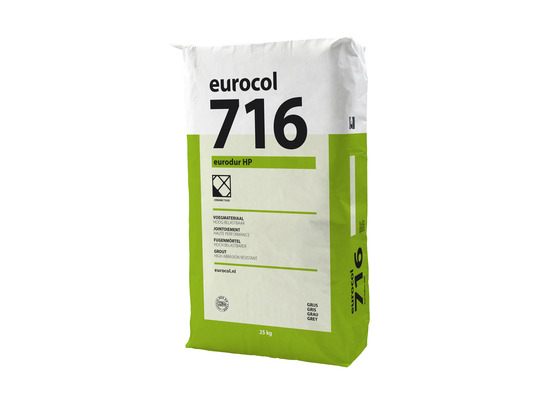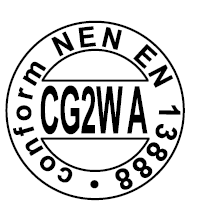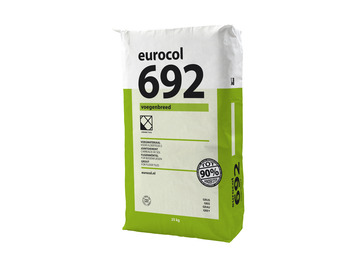eurocol
716 EURODUR HP
Very strong cement-based grouting cement with a high chemical resistance with increased wear resistance and chemical resistance for grouting ceramic floor tiles in wall and floor applications, dark-colored natural stone and mosaic. Joint width of 2 - 10 mm. Applicable to almost all well-constructed constructions, such as cement and plaster-like surfaces, sheet material, floor and wall heating in indoor and outdoor applications.







